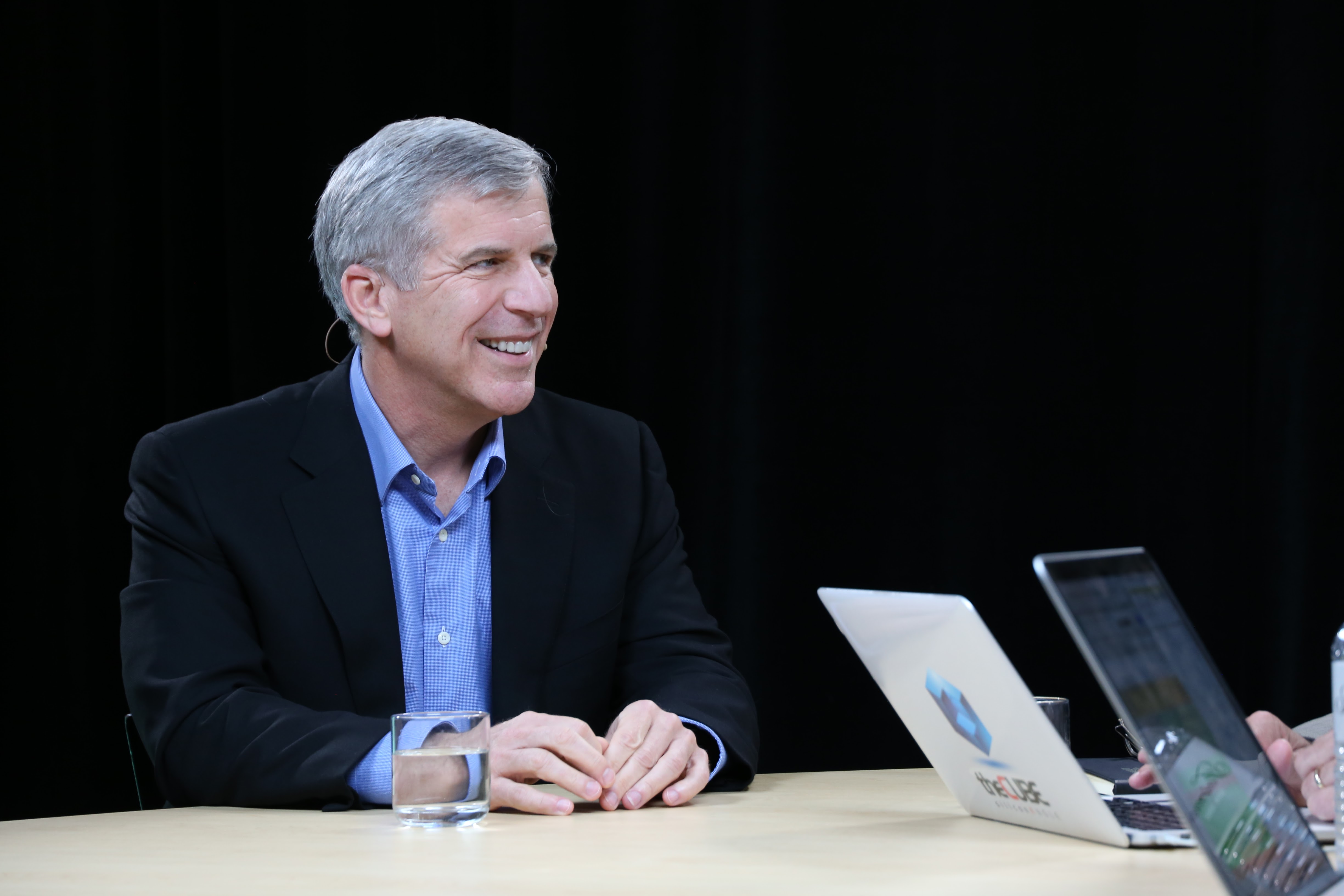 NEWS
NEWS
 NEWS
NEWS
 NEWS
NEWS
In recent years, the rise of Big Data across such a wide range of sources and consumers has been a surprise even to those companies that were specializing in data-management from the outset of Big Data’s viable handling. Finding ways of improving accessibility and easy utilization have been high priorities since the rise began, something quite visible at BigDataSV 2016, where theCUBE is celebrating #BigDataWeek, including news and events from the #StrataHadoop conference.
John Furrier (@furrier) and George Gilbert (@ggilbert41), cohosts of theCUBE, from the SiliconANGLE Media team, met with Jim Davis, EVP and CMO for Informatica Corp., to discuss the Big Data-managing company’s perspective on the situation and how clients are responding to market pressure toward integration.
Davis was frank about the farfetched appearance of Big Data relevance as it seemed just a few years ago. “We start with talking about Big Data a few years ago, and to me it sounded like a lot of hype,” he said. “[That hype] became a reality in terms of products and services that came to the market.”
Since then, several things have come to light, both positive and negative. “Probably the number one benefit that’s come out of this is an understanding in the business community about the value of data and what it can do for business beyond just optimizing current activities,” Davis said. “I believe data has now become an asset that’s as important to an organization as its people, its products, its infrastructure, you name it. And I think that’s why it is so big today; so the challenge becomes how to harness it.”
With that recognition by such a large slice of the market, companies that approached Big Data usage early are finding the pay-off considerable. “I do see data today as being an absolute critical asset to the success of business, to the success of organizations. It is the currency.”
There are also reactionary changes within the structuring of companies handling the data: “If truly respected in the organization, it becomes an asset where you can initiate new lines of business.”
For end-users, companies which effectively leverage this collected data can be a big draw, even if that data is pulled in in a fragmentary form, as this allows diversification through specifically-targeted apps.
One such case is in the higher profile of metadata, which Davis said “used to just be data about data that IT people worried about … metadata has evolved to a point that it can now be consumed by applications and user applications such that they can understand the content, they can understand the relevance to the decisions they’re making.”
As a result, wider availability of open APIs and aims toward presenting a singular, searchable framework for metadata is on the horizon, Davis said. “What we find with metadata right now is that people who have applications that are based on a very specific metadata layer for their application understand the importance of working well together with others,” he added.
Looking forward, Davis emphasized the importance of recognizing user demands, expectations and desires. “The reality now is that it’s the end-users that are driving things … That isn’t to say that IT isn’t involved; it’s becoming a much better world because IT and business are coming together … I believe the businesses are going to have to recognize IT’s responsibility.”
Watch the full interview below, and be sure to check out more of SiliconANGLE and theCUBE’s coverage of BigDataSV 2016. And make sure to weigh in during theCUBE’s live coverage at the event by joining in on CrowdChat.
Support our mission to keep content open and free by engaging with theCUBE community. Join theCUBE’s Alumni Trust Network, where technology leaders connect, share intelligence and create opportunities.
Founded by tech visionaries John Furrier and Dave Vellante, SiliconANGLE Media has built a dynamic ecosystem of industry-leading digital media brands that reach 15+ million elite tech professionals. Our new proprietary theCUBE AI Video Cloud is breaking ground in audience interaction, leveraging theCUBEai.com neural network to help technology companies make data-driven decisions and stay at the forefront of industry conversations.